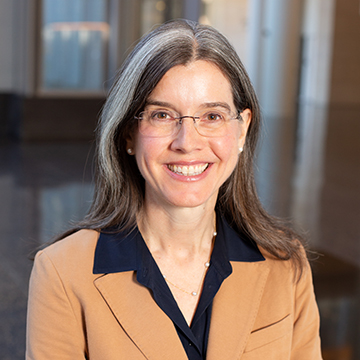Empowering Clinical and Translational Research Across Northwestern with Leah Welty, PhD, and Anju Peters, MD
As part of $55 million recently awarded to NUCATS by the NIH's Clinical and Translational Science Awards Program, NUCATS will provide critical resources and services that empower clinical and translational research across Northwestern and its affiliates. Leah Welty, PhD, and Anju Peters, MD, are co-leading an effort to streamline research processes and foster innovation through collaborative efforts. In this episode they talk about what NUCATS members can expect as these efforts launch in the months ahead.

This work is bringing together everything from supporting innovation to ethical research conduct, inclusive recruitment of participants and really cutting-edge methods, to thinking about the rigor and reproducibility of the actual research process.”

The bottom line is to facilitate inclusion and to do research ethically of diverse populations. Hopefully over time, we can also inform the rest of the CTSA network about the importance of designing and conducting research in this way. ”




